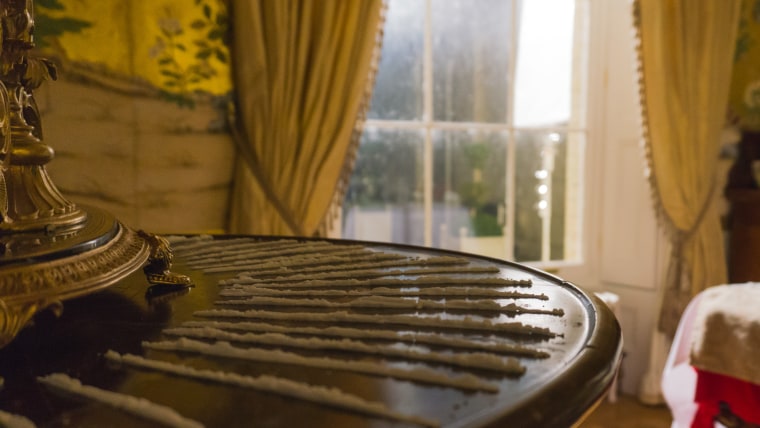When Gary Webb’s investigative series “Dark Alliance” came out in the San Jose Mercury-News in 1996 alleging the Central Intelligence Agency was involved in the importation of cocaine into South Central Los Angeles, many people in the Black community claimed the articles proved the CIA deliberately was out to destroy Black people, and a long-standing urban conspiracy theory was born.
Webb’s story has since been removed from the Mercury News website, and resulted in a two-part CIA report released in 1998 on cocaine and the agency’s involvement in drug trafficking investigations, it fueled deep distrust among the Black community that is still present today.
Anthony Lappé, an executive producer behind the History Channel’s new documentary series “America’s War on Drugs,” says that although these theories around federal agencies injecting drugs into the Black community have swirled for years, this new docu-series will reveal that they’re just not true.
“Of course it wasn’t any kind of genocidal experiment or anything like that, what it was is the CIA basically being the CIA,” Lappé said. “They’re completely amoral and they don’t really look at the long term blowback effects of their operations.”
“America’s War on Drugs” four-part series beginning Sunday night comes as the U.S. fights a raging prescription opioid addiction crisis and increase in heroin use. The series also comes just a month after U.S. Attorney General Jeff Sessions announced he will instruct federal prosecutors to enforce so-called mandatory minimum sentences on gun and drug offenses. While Sessions says this is meant to help get criminals off of the streets, opponents say it will mean going back to the days of harsh sentencing that will likely have profound effects on people of color.
Related: Black Lives Matter Chicago Sues City, Seeks Court Oversight of Police Reform
Lappé, alongside Julian P. Hobbs, Elli Hakami, spent a year conducting dozens and dozens of interviews with former CIA officers, Drug Enforcement Agency officers, historians and more. The crew takes viewers through an eight hour journey crisscrossing the world and deconstructing how the U.S. “war on drugs” truly began through interviews, old footage, and reenactments.
What they uncover is that America’s history with drugs is intertwined with fears of communism, rogue drug mobsters and warlords, the failed takedown of Fidel Castro in 1961, the Vietnam War, infighting between the DEA and CIA, and drugs -- including LSD, heroin and cocaine -- slowly making waves in communities.

But the documentary also makes the case that Blacks were victims caught in the melee of CIA operations and President Richard Nixon’s desire to have a “law and order” administration in the 1970s through the war on drugs.
Christian Parenti, a New York University professor interviewed in the documentary, said the trick with the war on drugs was to deal with a variety of things outside of the government’s control.
“The war on drugs brought together the peace movement, the hippies, the counterculture, African Americans, all of this stuff can be captured and addressed by force with law enforcement under the rubric of the war on drugs,” Parenti said.
Toward the end of the first episode, the creators of the series include a taped conversation between John Ehrlichman, counsel and chief domestic advisor under President Richard Nixon and a Harper’s Magazine journalist decades after the “war on drugs” is declared. It’s there that Ehrlichman makes a chilling admission.
“The Nixon campaign had two enemies, the antiwar left and Black people,” Ehrlichman said. “We knew we couldn’t make it illegal to be either against the war or Black but by getting the public to associate the hippies with marijuana and the blacks with heroin and then criminalizing both heavily, we could disrupt those communities. We could arrest their leaders, raid their homes, break up their meetings and vilify them night after night on the evening news. Did we know we were lying about the drugs? Of course we did.”
